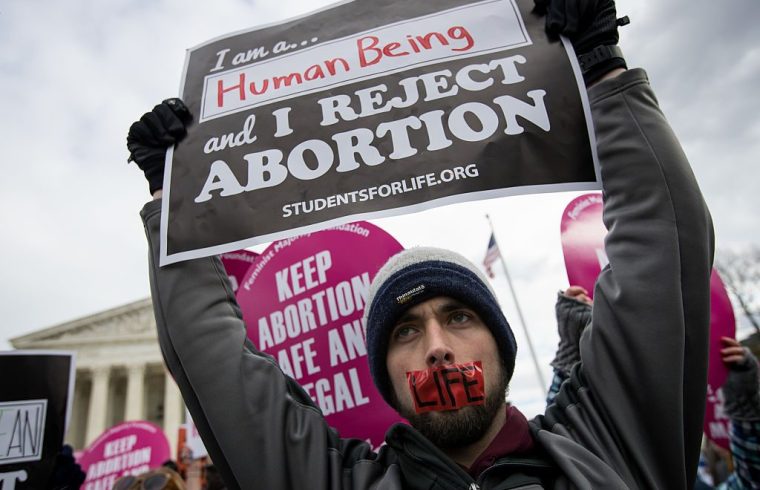As the Biden administration waited for a decision on Thursday to decide whether Texas’ most restrictive abortion law would be allowed to stand, 18 states supported Texas’ ban.
The rush by mostly Southern and Midwestern attorneys to defend Texas reflected the larger stakes and how other Republican states might pursue their own versions of Senate Bill 8. This bans abortions once heart activity is detected. It’s usually around the sixth week. This is often before women even know they are pregnant.
The ban has been in effect in Texas since September. It was suspended for 48 hours last week by a federal judge. The 5th U.S. Circuit Court of Appeals swiftly overturned that decision and is expected in the next few days to make a lasting decision about whether the law may be kept in force.
Merrick Garland, the U.S. Attorney General, called the law “clearly unconstitutional” during a lawsuit against Texas. He warned that the law could be a model for other countries if it isn’t struck down.
Texas was also defended by other states who accused the Biden administration of overstepping its bounds by challenging the law, but largely avoided the wider arguments about the constitutionality of the law.
“The Attorney General has no authority to act as a roving reviser of state law, challenging as unconstitutional any rule with which he disagrees,” Indiana Attorney General Theodore Rokita told the appeals court in a brief filed late Wednesday.
Signing on in agreement were the state attorneys general from Alabama, Arizona, Arkansas, Florida, Georgia, Kansas, Kentucky, Louisiana, Mississippi, Missouri, Montana, Ohio, Oklahoma, South Dakota, Utah and West Virginia.
The 1992 Supreme Court ruling prohibited states from banning abortion prior to the time a fetus is able to survive outside of the womb. This was around the 24th week of pregnancy. Texas’s version has outperformed courts by far, as it allows private citizens to enforce the law rather than criminal prosecutions. If citizens prevail in lawsuits against abortion providers and anyone who helped a woman to get an abortion, they can collect at least $10,000.
On Thursday, the Texas attorney general’s office urged the court not to change the law while they appeal. The U.S. Supreme Court could decide whether the law is still in force. It did so last month without deciding on its constitutionality.












